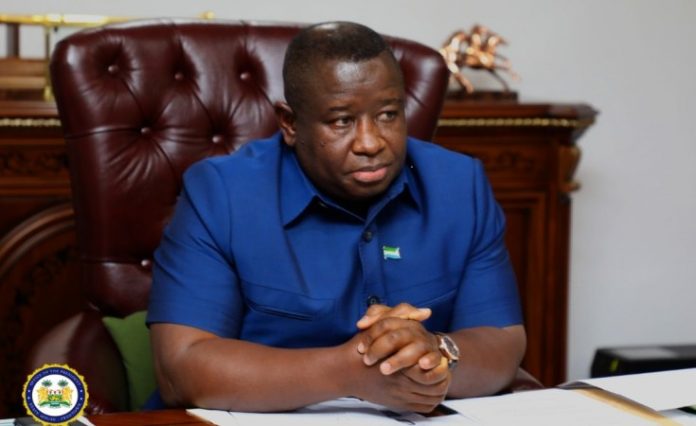By Amin Kef Sesay
The now ruling SLPP government should not selfishly take all the credit for the country having become Millennium Challenge Corporation’s (MCC) Compact eligible that will bring USD400 million of much needed development funding into the country.
In strengthening the Anti-Corruption Commission (ACC), in putting in place new state administrative and financial management policies and measures to control fraud and misuse of public funds, ex-President Koroma undoubtedly did a lot to improve on good state governance; albeit his being greatly undermined by the ministers and heads of MDAs he entrusted state administration and management to.
Sierra Leone’s development and transformation program for realizing the country’s full potential continues to depend on good governance, democracy, respect for human rights, justice and the rule of law.
Indeed, good governance is perhaps the single most important factor in eradicating poverty and promoting development.
So far, progress on good governance has been encouraging, but challenges remain.
The Bio government continues to build on the good governance gains that have been achieved since the early 2000s which are:
(i)An effective state, (ii) mobilized civil society, and (iii) an efficient private sector.
The key elements of good governance then, are accountability, transparency, combating corruption, citizen participation, and an enabling legal/judicial framework.
Fighting poverty and improving human development must begin with the creation of wealth, a process that requires the existence of a robust entrepreneurial class.
We still have some way to go to achieve the type of reforms that can prevent dictatorship, corruption, economic decline and political violence, particularly in the maintenance of peace and security, as well as the promotion of economic growth and the creation of the wealth needed to confront poverty and improve human development.
Thus, without good and inclusive governance, the country will not achieve its social and economic targets.
It is imperative that the country entrenches mechanisms that promote constitutionalism, accountability, democracy, and good governance to achieve its development goals.
The number of Africans living in poverty remains high.
Unless effective anti-poverty and pro-poor policies are implemented, poverty will increase.
Fighting poverty and improving human development must begin with the creation of wealth, a process that requires the existence of a robust entrepreneurial class.
In order to achieve these goals, there must be peace and security—especially the peaceful coexistence of the various ethno-cultural groups in the African country.
Unfortunately, weak and dysfunctional governance structures continue to prevent the country from creating and sustaining the necessary enabling environment for peaceful coexistence, entrepreneurship, and wealth creation.
The absence of governance structures undergirded by the rule of law has failed to halt ethnic-induced violence. That violence stunts entrepreneurship and economic growth.
Peace and security, which are a sine qua non for entrepreneurial activities and the creation of wealth, are likely to be fragile without the provision of participatory and inclusive governance structures.
Weak governance manifests itself in other ways as well: Too often dysfunctional governance processes persist, creating environments where civil servants and political elites act with impunity, embezzling scarce public resources that could be used for education, healthcare, infrastructure, water treatment plants, electricity, farm-to-market roads, or technology. Elites are usually not incentivized to implement pro-poor economic programs that enhance the ability of the poor to participate productively and gainfully in economic growth, such as public investments in primary and secondary education, clean water, basic health care, and child nutrition.
The type of governance structure that we should strive for over the next decade is one that should address peaceful coexistence and economic development, inequality, the effects of climate change, health pandemics, and enhanced regional cooperation, as well as ensure the full and effective participation in both the economic and political systems of groups that have historically been marginalized (e.g., women, youths, and ethnic and religious minorities).




